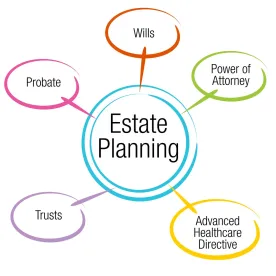You have reviewed multiple drafts of your Will, Trust, Living Will and Financial Power of Attorney, attended multiple meetings with your attorney, discussed the final distribution of your assets, selected your Executor and Trustee, and finally executed your estate planning documents. So you must be done, right?
It depends. There is often considerable follow up required to make certain that your unique planning is fully achieved. Below is a checklist of a few commonly overlooked items:
Beneficiary Designations – Perhaps the most critical of all follow up items are beneficiary designations for transfer on death and retirement accounts, and life insurance policies. Generally, these assets do not pass according to the provisions of your Will or Trust. Beneficiary designation forms must be prepared and filed with the account custodian or insurer, so that your beneficiaries are properly identified. Failure to properly designate your beneficiaries can undermine your entire estate plan and may have disastrous income tax consequences.
Trust Funding and Form of Ownership of Assets – Similar to ignoring beneficiary designations, you can unknowingly undermine your estate plan by failing to properly fund a Revocable Trust or consider the form of ownership of certain assets. You may have executed a Revocable Trust with probate avoidance in mind. If you thereafter fail to fund the executed Revocable Trust, your beneficiaries will be required to probate your assets. Assets owned jointly with rights of survivorship, such as a bank account or a residence, will not pass according to the provisions of your Will or Trust. This can skew your dispositive scheme, or even undermine your estate tax planning. Careful consideration must be given to the titling of each and every asset that you own.
Sharing Your Estate Plan with Your Family and Professional Team – While your estate plan is a private matter, it may be helpful to share or discuss it with family members and professionals such as your accountant and financial advisor.
Accessibility of Estate Plan and Other Information – You have spent time and effort to develop an estate plan, but that planning can be stymied if your important documents are locked away in a safe deposit box or encrypted computer file, or your family is unable to ascertain what assets you own. In today’s digital age, estate planning requires a review of where you store and access your financial information and records. Your estate planning attorney can advise you on the best method of ensuring that your paper and electronic documents are accessible to your family and fiduciaries when they are needed. Likewise, your burial and health care instructions need to be available to your family members or other designated representative. We suggest that you prepare a list with the contact information of your estate planning attorney, basic information concerning your assets, and other relevant information for your family and fiduciaries.
Change of Circumstances – Finally, your estate plan was prepared based on your circumstances and certain assumptions about your finances. If your circumstances have changed, by divorce, sickness or a significant increase or decrease in assets, you should speak with your estate planning attorney to see if any changes to your estate planning documents are required.




 />i
/>i
